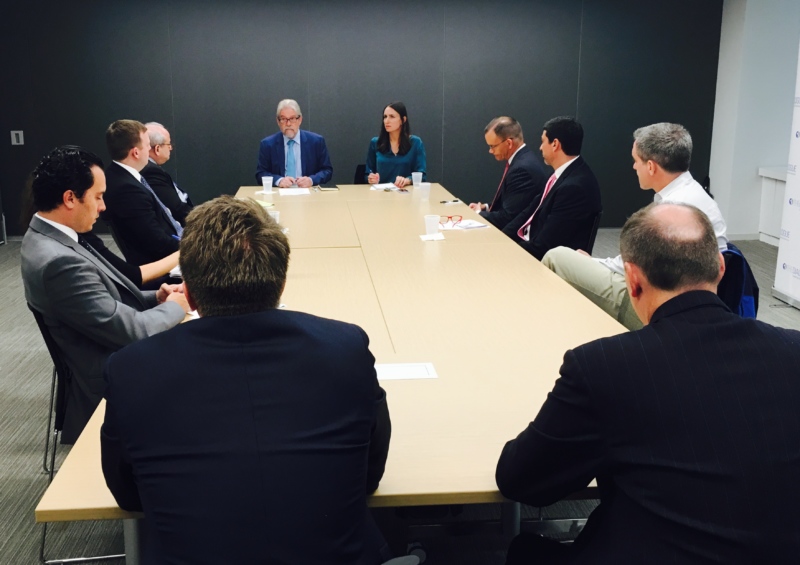The Washington Post & the OAS Secretary General
The OAS needs to be reformed, but the changes need to emerge from accurate analysis of the problems confronting both Latin America and the OAS.
In spite of a steady economic recovery, low inflation and improving fiscal balances, Latin America is seeing weak private investment in energy and other sectors. This is in part because the region is facing great political uncertainty due to increasing polarization, Michael Reid, a columnist for The Economist and top expert on Latin America, told members of the Inter-American Dialogue's Energy and Resources Committee.
Over the next year, most of Latin America's major energy-producing countries will hold presidential elections. Centrist candidates in many countries are weak, opening opportunities for far left and far right candidates to increase political polarization.
In Mexico, the populist, leftist candidate Andrés Manuel López Obrador is the clear front runner for presidential elections to be held next July, but is also widely disliked by much of the country's upper and middle classes. López Obrador has been highly critical of Mexico's energy reforms, claiming in a recent event co-hosted by the Dialogue that the reform has failed to bring an increase in investment and oil production and vowing to review oil contracts.
Colombia, where oil production has declined under the current government, has a wide number of potential presidential candidates for the first round of elections in May. But if the second round in June comes down to two candidates from the extreme left and right, polarization will only increase. Analysts believe that a right-wing president will likely revive the oil sector by introducing policies favorable to foreign investment.
In Brazil, former president Lula, a populist leader and polarizing figure, is also a leading candidate for the October presidential elections, even though he has been indicted for corruption. Lula's nationalist policies for the oil sector ultimately contributed to a decline in oil production in the country and near default of state oil company Petrobras, while his center-right successor has opened the sector to private investment.
Venezuela is also to hold presidential elections next year according to its constitution. However, Venezuela appears highly unlikely to hold free and fair elections after the regime consolidated its power by creating a constituent assembly to override the powers of the opposition-controlled national assembly. Despite the decline in oil production, the government could avoid default this year thanks to support from China and Russia.
The Energy and Resources Committee is a select group of corporations and organizations that support and engage with the Dialogue on energy, climate change and extractive industries issues in Latin America.

The OAS needs to be reformed, but the changes need to emerge from accurate analysis of the problems confronting both Latin America and the OAS.
What should we expect from a newly powerful Brazil? Does the country have the capacity and leadership to be a central actor in addressing critical global and regional problems?
Although politics has cyclical features, and ideology is sometimes a factor in choices made by Latin American voters, the left-right labels obscure more than they illuminate.
